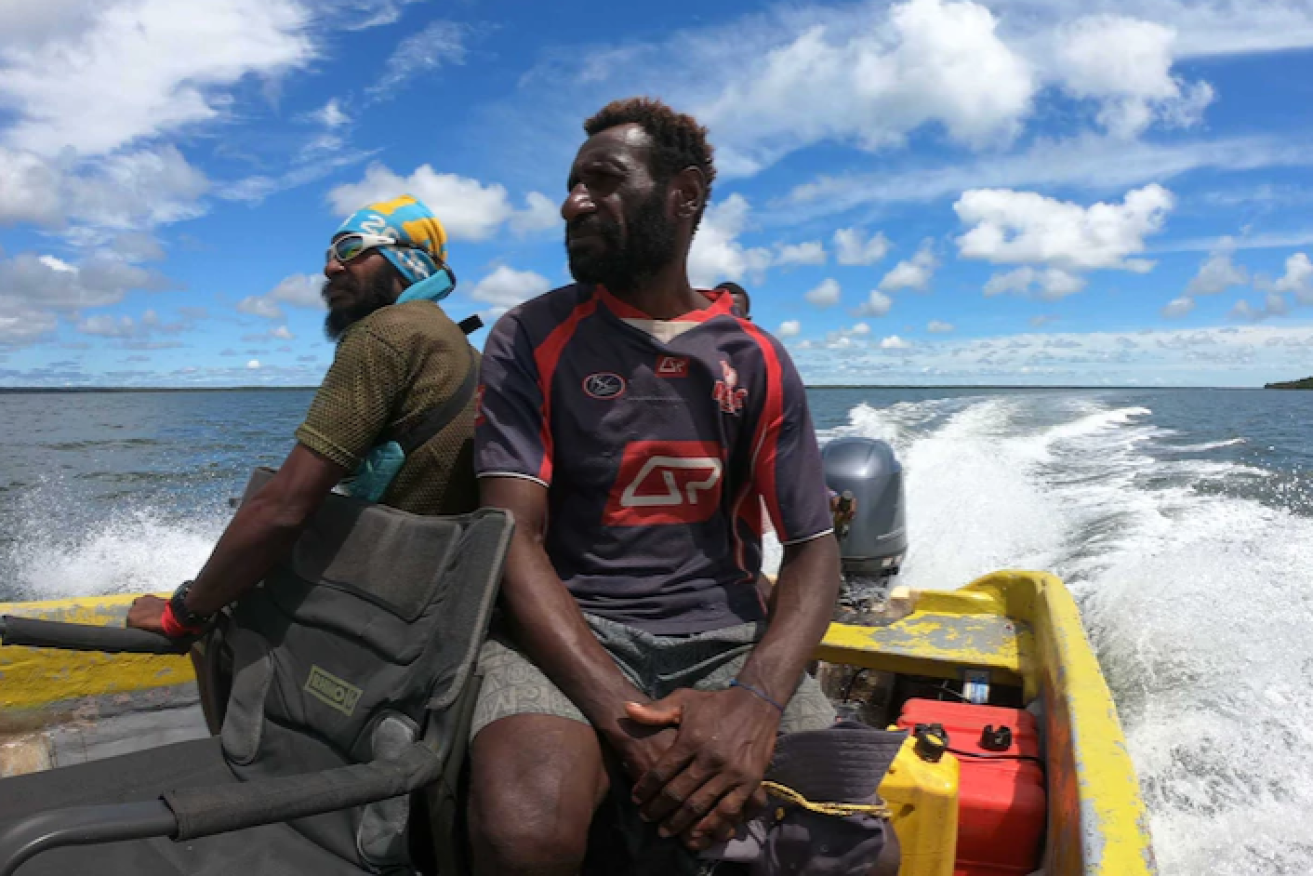‘Clear and present danger’: PNG outbreak becomes a major concern for Australia
Queensland Health staff will be sent to vaccinate people in a string of Papua New Guinea communities as part of an extraordinary cross-border response to the unfolding crisis.

Some islands in the Torres Strait are just a short dinghy ride from PNG, leaving residents feeling vulnerable to the outbreak. (ABC image).
Prime Minister Scott Morrison today said Australia had long been concerned about the threat of COVID-19 to the region and “the challenge was always going to be too great for Papua New Guinea”.
“The escalation of issues with the virus in Papua New Guinea presents very real risks to Australia, as well,” Morrison said outside parliament.
As Australia prepares to rush vaccines, medical supplies and even clinicians to its closest neighbour, while at the same time tightening the border, the scale of the Papua New Guinea epidemic is still unclear.
Chief Medical Officer Paul Kelly today said half of the tests conducted at the Ok Tedi mine came back positive, as did tests on half of the pregnant women going to hospital in Port Moresby to give birth. Many health workers had also tested positive.
Since March 15, Queensland has also detected COVID-19 in 32 travellers from Papua New Guinea, who were then transferred into the state’s hospital system. Another two are believed to have been detected overnight.
“These are all signs that there is a major epidemic in the community,” Kelly said.
Kelly conceded any official figures on the number of cases or deaths would be “a major underestimate” as Papua New Guinea lacked the resources to conduct widespread testing.
Federal Health Minister Greg Hunt had earlier described the situation as a “clear and present danger”.
After talks with Papua New Guinea Prime Minister James Marape, and Queensland Premier Annastacia Palaszczuk, Morrison announced Australia would send 8,000 doses of its vaccine supplies to ensure Papua New Guinea health workers could be protected sooner. He has also asked AstraZeneca and the European Union to release one million doses of Australia’s contracted supplies to be sent to Papua New Guinea, and for Australia’s diplomatic partners to assist where possible.
Direct flights into Cairns will be suspended for a fortnight, passenger caps for flights into other Australian cities will be reduced by a quarter, with fewer exemptions for outbound travellers. Fly-in, fly-out operations have also been grounded, and there will be enhanced screening and surveillance for the foreseeable future.
Palaszczuk said the situation in Papua New Guinea was “quite alarming” and she expected Australia’s response to come as a relief to communities on both sides of the border.
”People can rest a lot easier tonight,” Palaszczuk told reporters in Cairns.
A three-member AUSMAT team will arrive in Papua New Guinea next week to make arrangements for a larger clinical care team to assist.
In an extraordinary move, Queensland Health staff already vaccinating communities in the Torres Strait be allowed to cross the border to help treaty villages in Papua New Guinea, although Palaszczuk suggested arrangements had yet to be finalised.
It comes as Queensland’s vaccination program was altered to protect patients, but as a consequence may require additional time, or resources, to complete.
As Queensland continues the rollout of the AstraZeneca vaccine, it has had to take extra precautions with people who have previously had severe allergic reactions. Four people have had adverse reactions to the vaccines over the past 48 hours.
Health Minister Yvette D’Ath said anyone who had severe allergic reactions in the past should delay having vaccinations until the issue was discussed and resolved at a national level. Everyone else will be monitored for longer after their vaccination as a precaution.
Queensland Health Director-General Dr John Wakefield said it was not unexpected and the four people were all treated and allowed to go home “so they’re all safe”.
Wakefield said the “extra blanket of safety” would see people monitored for any reactions for 30 minutes instead of 15 minutes after their injection. It was unclear what impact that would have on the rollout of vaccinations, however national surveillance was already being bolstered.
In the Torres Strait, where vaccinations have been brought forward, Kelly said communities “understand the threat” from Papua New Guinea.
“Over the last couple of weeks, very rapidly the situation has changed in Papua New Guinea,” he said.
“Of the (overall) cases that have been diagnosed in PNG, half of them have been diagnosed in the last couple of weeks.”
Kelly said there was concern the environment could see the virus mutate into a more dangerous “PNG strain” that would further complicate the response.












